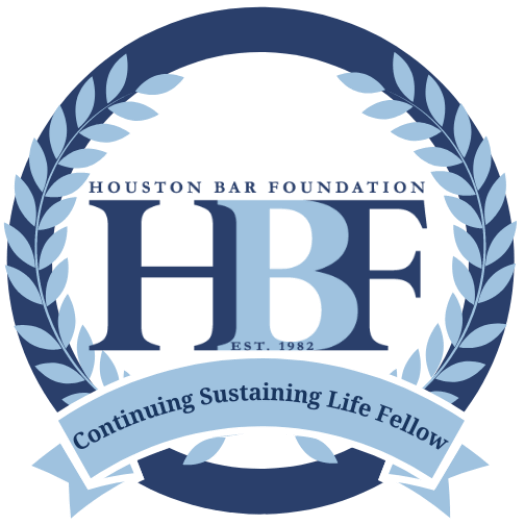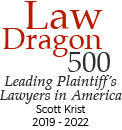
Houston Personal Injury Lawyers
We Handle Houston Car Accidents, Truck Accidents, Maritime Injuries, Wrongful Death, Houston Motorcycle Accidents and More.
Why Hire the Krist law firm?
Cases involving an injury are paid on contingency fee. This means that you only pay if the law firm recovers money for your damages. So, why not hire the best injury lawyer you can? Choosing a personal injury law firm with experience in your type of case and with a history of large recoveries can help you get the best result from your case.
Exceptional Results
The Krist Law Firm, P.C. works hard to obtain the maximum amount of compensation possible in every personal injury case. Our Houston injury attorneys have the experience and resources necessary to fight for every penny you deserve. We’ve been protecting injured Texans for more than 40 years.
Click on a case result for more information, including fees and expenses.
See More Results
*The outcome of an individual case depends on a variety of factors unique to that case. Case results do not guarantee or predict a similar result in any similar or future case.
“I really get very close to my clients. I fight for them like I would for one of my friends”MEET SCOTT KRIST
We Fight For Our Clients Like They’re Family
“One thing that I’ll tell you about Scott is that he’s going to fight for you. Bottom line. You know, my nickname for Scott is “the Bulldog.” He told me from the very beginning, “I’m to worry about your financial health. You worry about your physical health” — and that’s what he did.
That’s what The Krist Law Firm did for me — they honored their word.”
Spencer Brooks, client
Over Five Decades of Experience
We have handled some of the most significant cases in US history, including the following three NASA cases. Click on the images to the right to learn more about how we helped these Astronauts win their cases.
Apollo 1 Fire
An aerospace accident in which a cabin fire killed all three crew members.
Space Shuttle Challenger Disaster
A spacecraft explosion shortly after launch resulted in the deaths of all seven crew members.
Space Shuttle Columbia Disaster
Upon reentering Earth’s atmosphere, a spacecraft disintegrated and killed all seven crew members who were returning home.
Award-Winning personal injury attorneys
The Krist Law Firm, P.C. has a well-earned reputation for talented, ethical, and aggressive representation of accident victims. Our experience has earned us the respect of our peers and we’re honored to be included in the Best Lawyers in America©, Texas Best Lawyers, Super Lawyers, the Top 100 Trial Lawyers by The National Trial Lawyers, and winning prestigious Litigator Awards in 2014 and 2015 from the Lawyers’ Board of Regents.
Houston Bar Foundation
Continuing Sustaining Life Fellow

U.S. News – Best Lawyers® “Best Law Firms”
Invitational only organization. Inclusion is based on peer nomination and review.
Best Lawyers In America:
Invitation only organization. Inclusion is based on peer nomination and review.
Trial Lawyer Board of Regents Litigator Awards:
Honors the top 1% of all lawyers.
American Academy of Trial Attorneys:
Premier 100 civil attorneys
Law Dragon 500:
Top 500 leading plaintiff’s lawyers in America
The National Trial Lawyers:
Top 100 Trial Lawyers.
National Association of Distinguished Council:
Less than 1% of practicing attorneys are selected.
The Best Lawyers in Houston by H Texas Magazine:
Peer selected among the Best Lawyers in Houston
National Academy of Personal Injury Trial Attorneys:
Awarded Top 10 Attorney Award in Texas.
Distinguished Justice Advocates:
Top 1% Attorney in America.
Texas Super Lawyers:
Awarded to Scott Krist every year since 2004
Since 1968, our Houston injury lawyers have been here to help and support people who suffered severe injuries because of others’ negligence. Our team of personal injury lawyers, headed by lead trial lawyer Scott Krist, work tirelessly to obtain the best possible outcome for every client.
If you’re looking for a personal injury law firm in Houston that can help you get the recovery you deserve, call us today 281-326-9197 to find out how our injury attorneys can help you.
Do I have a personal injury case?
- The responsible party was careless or negligent. (A distracted driver struck your car)
- Their negligence caused your injuries. (You sustained multiple broken bones in the crash)
- Your injuries resulted in harm. (You suffered medical expenses, lost wages, and other damages)
If your accident and injuries meet these requirements, it’s in your best interest to speak with a knowledgeable personal injury lawyer about your options and next steps. Call for a Free Consultation. 281-326-9197.
What Is My Injury Claim Worth?
Personal injury law can be complicated, and obtaining what’s fair usually means dealing with insurance companies, negotiating an insurance settlement, and sometimes filing a personal injury lawsuit. It can be hard to know everything you need or are entitled to without help, but some things to think about when estimating the value of your claim are:
- How much property damage was involved?
- How much are your medical bills?
- Did you need surgery or will in the future?
- Are your injuries permeant or disabling?
- Did you miss out on work?
- Has your quality of life been affected?
- Do you share any of the blame?
While there is no precise formula for determining an exact amount for your injuries, your best option is to discuss what happened to you with an experienced injury lawyer.
Free Consultation
A serious injury can leave a mark on your life in many ways, not the least of which is financially. Further, we charge no attorney fees unless we recover financial compensation for you in your case. Take advantage of our No Recovery, No Fee guarantee.
Call Today281-283-8500 or fill out the online form
"*" indicates required fields
Types of Personal Injury Cases We handle
When you or your loved one has been the victim of an accident or wrongful death, you should never be left worrying about who will pay for bills or repairs. Your only focus should be on recovery.
Maritime Injuries
Maritime environments — whether in the Port of Houston, on a ship, or an oil rig in the Gulf of Mexico working at sea— can be dangerous, even fatal. Fortunately, maritime accidents and injuries are covered by specific laws. This makes them different than other personal injury cases, so it’s important to work with experienced Houston maritime lawyers, like those at The Krist Law Firm. With our background and maritime success record, we understand how to build the strongest case for injured maritime workers and secure the best possible compensation.
Truck Accidents
Houston and the surrounding area of Harris County is a major transportation hub. Unfortunately, that also means truck accidents are a common occurrence. And despite the often devastating injuries these collisions cause, trucking companies and insurance carriers usually try to avoid liability and offer much less than you deserve. That’s where our team of Houston truck accident lawyers can help. We have an excellent record in truck accident cases and have successfully helped many Houston accident victims.
Car Accidents
If you drive a car, the odds are that you’ll get into a collision at some point. You could be taking I-45 to the Gulf, going to work on I-69, or cruising downtown Houston on Main Street when suddenly you’re involved in a collision. When an accident causes serious injuries, your life can be changed forever. Our Houston car accident lawyers are here to help when you or a family member has suffered significant injuries in an auto collision in Houston.
Fatal Accidents & Wrongful Death
The grief you experience after the loss of a beloved family member can be especially difficult when your loved one’s death was caused by someone else’s negligence. Our Houston wrongful death attorneys at The Krist Law Firm, P.C. can help you obtain monetary compensation to protect your family’s financial future, as well as gain a sense of closure as the person who caused your loss is held accountable by the Texas legal system.
Work Accidents
An injury at work can be devastating. Your injuries may have happened while working in an oil field or they may have happened at a construction site. They may have been caused by employer negligence or a third party, and you may be facing a significant recovery. Our work accident lawyers at The Krist Law Firm, P.C. have more than 40 years of legal experience, and can help you file a claim against those who are responsible for your injuries.
Serious Injuries Require Experienced Lawyers
Personal Injury Lawyers You can trust
At The Krist Law Firm, P.C. Personal Injury Lawyers, we approach every person we represent with the utmost care and sensitivity. We know that your life has been turned upside down by your accident and we want to help in every way that we can. You can turn to us for the understanding and support you need during this chaotic time in your life and we’ll help you obtain the resources — financial and otherwise — that you need to make the best possible recovery.

Areas Served
Located in Houston, just off of Interstate 45 between E Medical Center Blvd and Bay Area Blvd, The Krist Law Firm, P.C. Personal Injury Trial Lawyers serves many areas in Texas. Whether you’ve been injured in an offshore accident, trucking accident, motor vehicle accident, aviation accident, or a work-related accident, you have a right to be compensated for damages.
No matter where you live in Texas, we can help.F
- Galveston County, TX
- Clear Lake Area
- La Porte, TX
- League City, TX
- Pasadena, TX
- Alvin, TX
- Texas City, TX
- Pearland, TX
- Harris County, TX
- Galveston, TX
- Brazoria County, TX
Injured and unable to travel?
If you’re located in an area not listed here, please don’t hesitate to contact us. We will travel to you if we can help.













